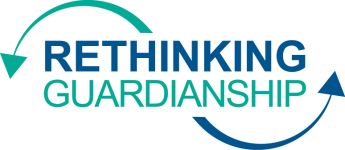Guest Blogger: Laurel Powell, Manager, Family Support Program of North Carolina
Picture this…it’s Tuesday at 5:00 pm. You just got off your last conference call of the day and now you get in your car and drive 40 minutes in traffic back to your house where three tired and hungry kids are waiting to greet you with the dreaded question “What’s for dinner?!” You didn’t make it to the grocery store yet this week and you have music lessons and sports practices in an hour. Decisions can be easy…but this one feels like the hardest one you’ve ever had to make in your life! Limited resources (no organized groceries, payday isn’t until Friday…), limited time (whose idea was it to let these kids explore opportunities and be well rounded, anyway?!), and limited capacity (man, it was a long day, you’re just ready to go to bed and it’s not even 6:00…) all cloud your ability to make a sound decision. So, the kids end up with a bowl of oatmeal and you end up with major mom guilt.
Wouldn’t it be nice to have a little support with those kinds of decisions? The thing about supported decision making is that it isn’t just for people with disabilities. It’s useful for everyone. We all reach our limit at some point and one person can have different levels of capacity for making sound decisions based on situations and life stressors and the supports we have available in the moment.
Family Support Network™ of NC, FSN for short, has been working with the University of Missouri at Kansas City to deliver trainings and information on the Charting the LifeCourse framework to interested families, service providers, and stakeholders across the state over the past several months. The Charting the LifeCourse framework was developed to help people plan for times when decisions will need to be made so they don’t have to make big decisions with limited capacity. The framework helps people think through what kinds of things they want for their life, what kinds of supports they have that can help them achieve those goals and what kinds of supports they do not have, and what will they need to put in place.
Why does FSN feel like this framework is so important in North Carolina? Well, let’s take a look at our scenario above. In our scenario, we didn’t start thinking about what might be for dinner until we walked in the door on Tuesday evening. What if we had started planning on Sunday instead? On Sunday, we could have looked at our calendar for the week and seen that Tuesday was going to be a tricky night with work meetings and extracurricular activities. Even if we couldn’t have made it to the grocery store on Sunday, we could have looked in our cabinets to see how we could be creative before we had limited time to make a decision. On Sunday, we could have talked to the kids about Tuesday being a tricky night and worked on a plan for dinner on Monday and Tuesday so we could use our available resources wisely. When we include our kids in this conversation, we might be surprised at what ideas they have for their dinners. Would this have solved all our problems with our Tuesday night schedule? Maybe not. Would we have walked into a different, more manageable scene on Tuesday evening after a long day of work? Definitely.
Now, let’s apply this same principle to supporting people with intellectual and developmental disabilities through decision making. The Charting the LifeCourse framework helps us to concretely support planning processes and decision making with easy-to-use tools and visuals. The whole idea is that you are using this framework to have these conversations and do the planning work well before the decisions have to be made. You are working to keep your eye on the prize and, for Charting the LifeCourse, the prize is always “the good life”.
When a person with a disability begins to transition to adulthood, they, as well as their family, are thrust into a world of new decisions. Rather than waiting until the next service update meeting, Charting the LifeCourse helps families begin to think about a person’s needs ahead of time. The framework helps the person and their family analyze what they want in life as well as what they DON’T want. Using the framework and tools, families can then analyze what resources they have in their lives that can help reach what they want and what resources they need to make sure they are not getting what they don’t want. These tools are living documents because as lives change resources change. Utilizing this kind of supported decision-making model helps families and individuals plan ahead of their meetings so when it comes time to answer tough questions, they know what they have and what they need to get their answers.
No one makes decisions in a vacuum; we all need support. Individuals with disabilities and their families should have access to planning materials so that they have a chance to make major decisions while considering all of their resources. That’s what supported decision making with the Charting the LifeCourse framework is all about. Whether we are talking about Tuesday night dinner or where to live after high school, nobody wants to make those decisions when they are unprepared!
To learn more about the Charting the LifeCourse framework, check out their website and tools at www.Lifecoursetools.com. Stay tuned to FSN for more opportunities to learn about using Charting the LifeCourse to support decision making for people with disabilities across North Carolina. For more information about supported decision making visit at www.RethinkingGuardianshipNC.org

